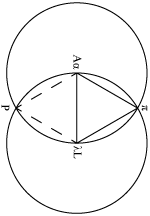marc j neveu
didascalic, adjective
Of the nature of a teacher or of instruction; didactic; pertaining to a teacher.
Etymology: Latin didascalic-us, Greek διδασκαλικός fit for teaching, instructive, διδάσκαλος teacher, διδάσκειν to teach
| 1609 | R. BERNARD Faithfull Shepheard (new ed.) 42 This of some is called the Didascalike or Doctrinall part of a Sermon. |
| 1718 | M. PRIOR Solomon on Vanity in Poems Several Occasions Pref., Under what species it may be comprehended, whether didascalic or heroic, I leave to the judgment of the critics. |
| 1813 | T. BUSBY (title), Lucretius’ Nature of Things, a Didascalic Poem. |
| 1833 | E. BULWER-LYTTON Eng. & English IV. They have no toleration for the didascalic affectations in which academicians delight. |
| 1866 | Elgin & Cathedral Guide I. 110 The didascalic power of the drama |
didascaly, noun
The Catalogues of the ancient Greek Dramas, with their writers, dates, etc., such as were compiled by Aristotle.
Etymology: modern < Greek διδασκαλία instruction, teaching; in plural as in quoted So modern French didascalie.
| 1831 | T. L. PEACOCK Crotchet Castle vi. 117 Did not they give to melopoeia, choregraphy, and the sundry forms of didascalies the precedence of all other matters, civil and military? |
| 1849 | G. GROTE Hist. Greece (1862) VI. II. lxvii. 26 The first, second and third are specified in the Didaskalies or Theatrical Records. |
didascalo, verb
First-person singular present indicative form of didascalare.
